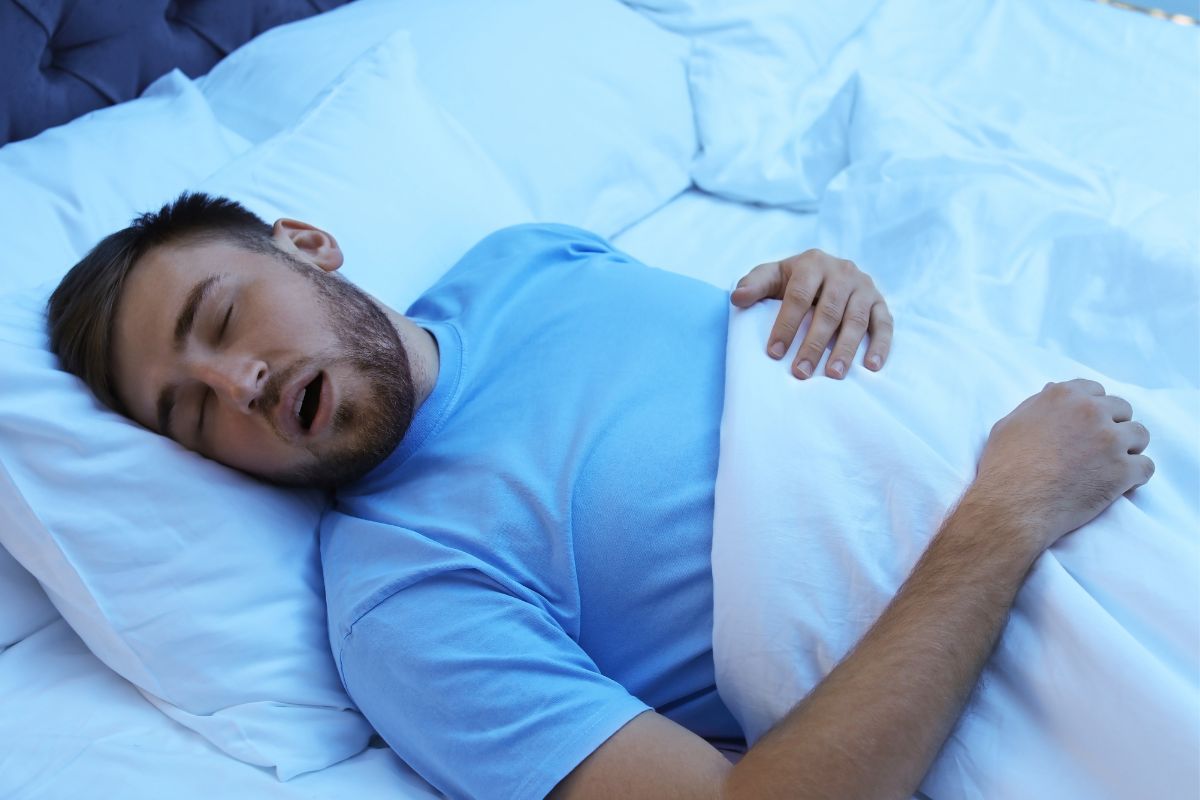Snoring can be a nuisance, but for many, it could also be a sign of something more serious: sleep apnoea. Often undiagnosed, this condition affects millions of people and, if left untreated, it can significantly impact your health, mood and quality of life. In this blog, we’ll take a look at what sleep apnoea really is, how to spot the symptoms and what you can do to manage it effectively.
What is sleep apnoea?
Sleep apnoea is a condition where your breathing repeatedly stops and starts whilst you sleep. The most common form, Obstructive Sleep Apnoea (OSA), occurs when the muscles in your throat relax too much, narrowing the airway and temporarily cutting off airflow. Each pause in breathing can last for a few seconds to a minute and may happen multiple times throughout the night.
Many people with sleep apnoea don’t realise they have it. They may think they’re just heavy snorers, unaware that their brain is constantly waking their body just enough to restart breathing. This disrupted sleep can leave you feeling exhausted, irritable and struggling to concentrate during the day.
Spotting the symptoms
The symptoms of sleep apnoea can often be mistaken for something else, like stress or insomnia. Knowing what to look out for can make a huge difference. Key signs include:
- Loud snoring (often reported by a partner)
- Choking, snorting or gasping during sleep
- Waking up frequently through the night
- Morning headaches
- Dry mouth or sore throat
- Excessive tiredness during the day
- Difficulty concentrating or mood changes
If these symptoms sound familiar, it’s worth taking a closer look. You can also use our SoundSleep app to monitor your night-time breathing patterns and snoring levels – a helpful first step in identifying potential sleep apnoea.
Why sleep apnoea shouldn’t be ignored
Untreated sleep apnoea puts a strain on your entire body. The repeated drops in oxygen levels can increase your risk of high blood pressure, stroke, heart disease and type 2 diabetes. It can also impair your driving ability, memory and even your mental health – leading to anxiety and depression in many cases.
It’s important to take your symptoms seriously. If you suspect you may have sleep apnoea, speak to your GP, who may refer you for a sleep study or suggest treatment options.
Finding the right support
Thankfully, there are effective ways to manage sleep apnoea. Whilst some cases may require CPAP therapy, others – especially those with mild to moderate symptoms – may benefit from simpler solutions like an oral device.
The Snoreeze Oral Device is a clinically proven, adjustable mouthpiece that holds the jaw forward to keep your airway open during sleep. It’s a custom-fit solution that works to reduce both snoring and the symptoms of sleep apnoea.
For added support, you can pair it with the SoundSleep app, which features an Oral Device Management Programme. This allows you to track your nightly results and monitor improvements over time.
Take the next step towards better sleep
If you’re experiencing the signs of sleep apnoea, don’t ignore them. Understanding your symptoms and exploring your treatment options can help you take control of your sleep and your overall health.
To find your ideal solution, try our Product Finder Quiz. It’s quick, free and helps you discover the most suitable snoring relief for your needs.
For more tips and tricks and to keep up-to-date with the latest news, follow us on Instagram and Facebook. Be sure to sign up for our newsletter to stay informed.

